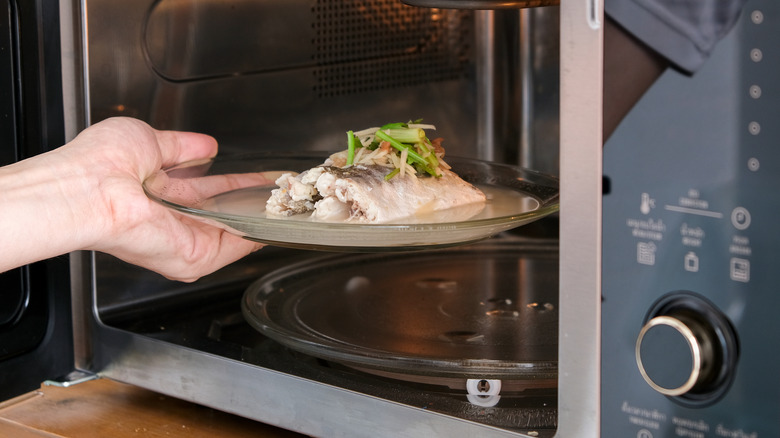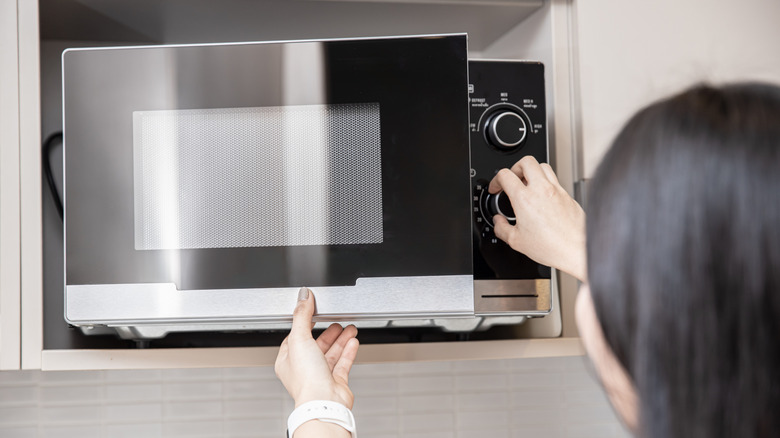Why Microwaved Fish Stinks So Darn Bad
It is a rite of passage in desk job life: At some point, every nine-to-five employee learns the hard way to never, ever microwave fish in the office. You may have made the mistake and gotten schooled, or you caught wind of the stench and educated a colleague. Regardless, it's a faux pas a professional doesn't make twice without risking the entire team's wrath.
But why does microwaved fish cause such a huge impact in the first place? It is because hitting the fish with a quick blast of high heat kickstarts the process of it releasing oils and fatty acids, which then quickly oxidize. The process is what causes that pungent and unpleasant fishy smell. The microwave's default settings tend to dry out the fish, which not only contributes to the release of oils but also makes your fish less tasty.
Of course, you can heat fish however you want to in your home kitchen. Even horror legend Stephen King even cooks salmon in the microwave. But in a communal environment, please be mindful of your co-workers' noses.
How to reheat fish in the office
If you must use the office microwave for fish, there are some steps you can take to minimize the negative impact. These are also good tips if you want to keep the fishy smell to a minimum in your own home.
First, get comfortable with the microwave's more advanced settings. Microwaves are usually set to automatically apply high heat, but you can change the settings to warm the fish at a lower power. This prevents the fish from drying out too quickly and being shocked into releasing smelly oils in the oxidation process. To be on the safe side, heat it for just about 30 seconds, which will also help prevent the fish from becoming too rubbery in texture. When heating it, keep it covered within a microwave-safe container, which helps seal in moisture. If you find the fish still comes out overly tough, try flaking it and mixing it into your salad or side to make it more palatable.
You can also mitigate fishy smells somewhat by opting for low-fat, mild-tasting varieties, such as cod, sole, or tilapia — these popular fish also have some of the lowest mercury levels. However, if you really want to keep that telltale scent at bay, your best bet is to just eat the fish cold.

